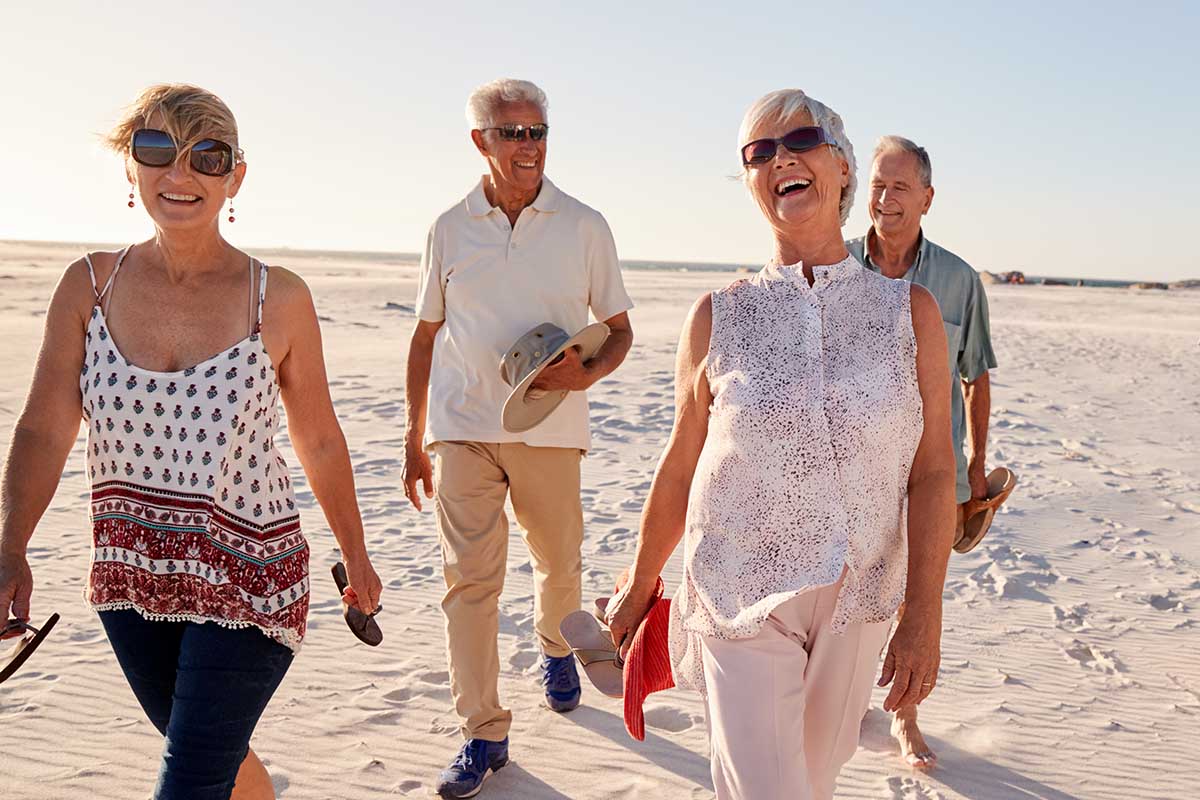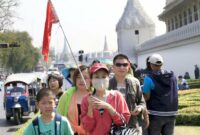Trips for senior adults offer a unique opportunity to explore new horizons, relax, and create lasting memories. This guide delves into the planning, preparation, and considerations for unforgettable journeys tailored to the needs and preferences of older travelers. Whether you envision a relaxing spa retreat, an adventurous hiking expedition, or a culturally enriching city exploration, we’ll equip you with the knowledge and resources to embark on a safe and fulfilling adventure.
From budgeting and choosing the right type of trip to understanding accessibility options and prioritizing health and safety, we cover every aspect of planning a successful senior travel experience. We aim to empower senior adults to confidently plan and enjoy their well-deserved vacations, transforming travel dreams into reality.
Planning & Preparation for Senior Trips
Planning a memorable and safe trip for senior adults requires careful consideration and proactive preparation. This involves meticulous budgeting, securing reliable travel arrangements, and prioritizing health and well-being throughout the journey. Failing to plan adequately can lead to unforeseen complications and diminish the enjoyment of the experience.
Budgeting for Senior Travel
Creating a realistic budget is crucial. This includes airfare, accommodation, ground transportation, activities, meals, and incidentals. Consider using budgeting apps or spreadsheets to track expenses. Factor in potential unexpected costs, such as medical emergencies or flight changes. For example, a two-week trip for a couple might budget $5,000-$10,000 depending on destination and travel style, with a contingency fund of at least 10% of the total budget. Remember to factor in potential discounts for seniors, such as those offered by airlines or certain attractions.
Booking Flights and Accommodations
Booking flights and accommodations well in advance is highly recommended, especially during peak seasons. Consider factors such as flight duration and the number of layovers to minimize physical strain. Choose accommodations that cater to senior travelers’ needs, such as accessible rooms, elevators, and nearby medical facilities. Look for hotels with good reviews regarding accessibility and staff helpfulness. Booking through reputable travel agencies can offer additional support and assistance.
Travel Insurance for Senior Travelers
Comprehensive travel insurance is paramount for senior travelers. This should cover medical emergencies, trip cancellations, lost luggage, and other unforeseen circumstances. Policies specifically designed for seniors often include higher coverage limits for medical expenses and may include provisions for pre-existing conditions. It’s advisable to carefully review the policy details and ensure adequate coverage for your specific needs and itinerary. Consider the cost of insurance as part of your overall budget.
Packing Checklist for Senior Travelers
A well-prepared packing list significantly reduces stress and ensures a smoother journey.
- Medication: Pack a sufficient supply of all prescribed medications, including copies of prescriptions. Carry medications in their original containers and keep them readily accessible.
- Medical Information: Include a list of allergies, medical conditions, emergency contacts, and the name and contact information of your physician.
- Comfortable Clothing: Pack loose-fitting, comfortable clothing suitable for the climate and planned activities.
- Essential Toiletries: Include travel-sized toiletries to minimize weight and comply with airline regulations.
- Walking Aids: If necessary, bring any walking aids such as canes or walkers.
- Copies of Important Documents: Carry copies of passports, visas, tickets, and travel insurance information separately from the originals.
- First-Aid Kit: Pack a basic first-aid kit with bandages, antiseptic wipes, pain relievers, and any personal medications.
Pre-Trip Health Consultations and Vaccinations
Scheduling a pre-trip health consultation with your physician is essential. This allows for a review of your medical history, assessment of any potential health risks associated with the trip, and discussion of necessary vaccinations or preventative measures. Depending on the destination, certain vaccinations might be required or recommended to prevent infectious diseases. Your physician can provide guidance on necessary vaccinations and any potential medication interactions. This consultation ensures a safe and healthy travel experience.
Last Word
Planning a trip as a senior adult should be an exciting and empowering process. By carefully considering the factors outlined in this guide – from trip type and accessibility to budgeting and health considerations – you can ensure a safe, enjoyable, and memorable experience. Remember to prioritize your comfort and well-being, and don’t hesitate to seek assistance from professionals or support networks when needed. Embrace the adventure, explore new horizons, and create memories that will last a lifetime.




